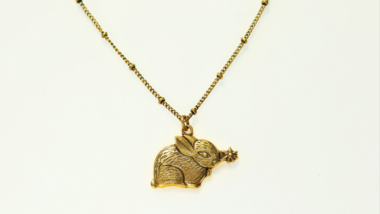A woman says that she and other consumers, especially young Canadians, were not warned about the highly addictive nature of the Juul e-cigarette in a proposed class action lawsuit lodged against the company in an Ontario court.
The plaintiff, Yumi O’Donnell, says that Juul Labs, along with its Canadian counterpart, sought to entice young people to use the vaping devices. To do so, they allegedly “downplayed or failed to disclose the dangers associated with its products.” Juul “created a culture of vaping,” contends the complaint, by exploiting Canada’s adolescents and young adults, leading to substance abuse and nicotine addiction.
The plaintiff says that she began using Juul e-cigarettes in the summer of 2018. She preferred the mint flavor of the vape pod and alleges that she relied on Juul’s advertising promoting the product as “safer than traditional cigarettes,” with no short or long term side effects.
“JUUL used decades of research by the tobacco industry to successfully market its tobacco products to youth and manipulate nicotine to maximize addiction,” states the Juul e-cigarette class action lawsuit. “JUUL recreated the tobacco industry’s methods to attract new (young) smokers by using candy/fruit flavours and youthful advertising. It packaged its nicotine delivery system in an easily concealable device that appealed to tech-savvy youth. It hired young models and ‘influencers’ to promote the product on social media, and created an image of ‘coolness’ and ‘trendiness’ around the product. JUUL also chemically manipulated its JUUL pods to deliver large quantities of nicotine so new (young) users would consume large quantities of nicotine in a short period of time.”
Yumi alleges that vaping carries very real risks, including “long-term nicotine addiction, changes in brain functionality, increased susceptibility to mood disorders and other addictions, decreased functionality of the endocrine system, a lowering of impulse control, increased risk of heart disease, stroke, and lung disease, heightened risk of cancer, and negative effects on fertility.”
Teens and adolescents are particularly susceptible to developing a nicotine addiction because of the effect that the drug has on their growing brains, says the Juul e-cigarette class action lawsuit. They are also prone to the type of social media based advertising messaging used by Juul to target youth with its dangerous product, argues the class action lawsuit.
However, Juul failed to warn consumers, claims the Juul e-cigarette class action lawsuit. It quickly became the most successful e-cigarette company in Canada when its products hit the market.
According to the Juul e-cigarette class action lawsuit, the company introduced its vaping products to the U.S. market in 2015. By 2019, the number of teenagers in Canada who reported vaping regularly skyrocketed by 70 percent, notes the Juul e-cigarette class action lawsuit.
“JUUL expanded the size of the entire vaping market and is recognized as the fastest start-up to reach a $10 million valuation, mainly a result of its exploitation of adolescent non-smokers,” states the class action lawsuit, further noting that “As of July 2019, JUUL had captured 78% of the Canadian vaping market. Its products are readily available online, at more than 13,000 vape shops and convenience stores across the country, and in two JUUL retail outlets.”
Concern over teen and youth vaping lead Juul to discontinue its popular fruit and candy flavored vape pods in the United States by 2018. In addition, the company halted many forms of advertising and changed its campaign in the U.S. However, the company failed to make the same changes in the Canadian market, alleges the Juul e-cigarette class action lawsuit.
“JUUL continued to market and distribute all of its flavour pods in Canada and continued to advertise its products to youth,” states the complaint. “Only recently did JUUL outline its plans to stop selling certain flavours in Canada.”
In fact, according to the Juul e-cigarette class action lawsuit, in Canada, the company continues to rely on advertising that appeals to teen and young adult users. Juul has thrived on marketing its products to vulnerable youth populations who become “hooked” on its e-cigarette’s high nicotine content. According to the complaint, Juul e-cigarettes and other products are “pervasive” in youth populations in Canada, including in schools, resulting in teens struggling with life-long nicotine addictions and associated health consequences.
The plaintiff seeks to represent all those in Canada who have used Juul e-cigarettes with the proposed class action lawsuit.
Have you or a loved one used Juul e-cigarettes? Do you think they used deceptive marketing? Tell us your thoughts in the comment section below!
The plaintiff and proposed Class Members are represented by Daniel Bach, Alex Dimson, and Kristen King of Siskinds LLP.
The Juul E-Cigarette Deceptive Marketing Class Action Lawsuit is Yumi O’Donnell v. Juul Labs, Inc., et al., Case No. CV-20-00639707-00CP, in the Ontario Superior Court of Justice, Canada.
ATTORNEY ADVERTISING
Top Class Actions is a Proud Member of the American Bar Association
LEGAL INFORMATION IS NOT LEGAL ADVICE
Top Class Actions Legal Statement
©2008 – 2026 Top Class Actions® LLC
Various Trademarks held by their respective owners
This website is not intended for viewing or usage by European Union citizens.

















13 thoughts onJuul E-Cigarette Class Action Lawsuit Filed Over Company’s Marketing
I submitted my clam thing and I still haven’t got a response please get back to me please
Yes, my daughter thought it was safer. She now has a scar on her lung from using Juul.